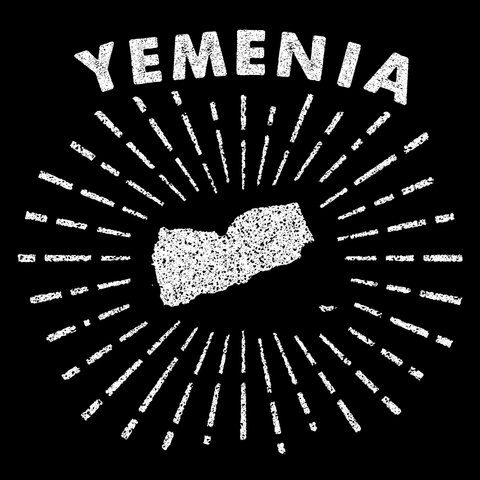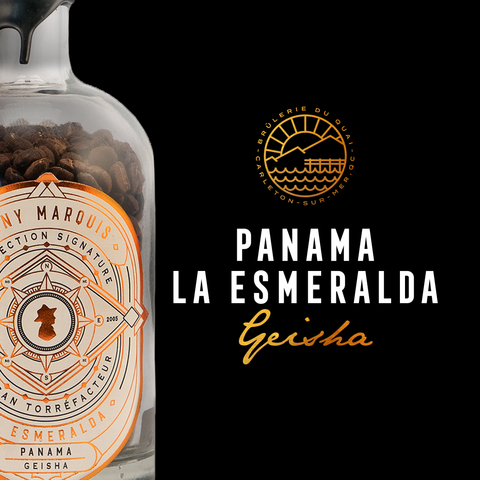This morning, I bought a batch of coffee from Yemen at a special auction organized by the Alliance for coffee Excellence group and the Qima specialty coffee company. Qima coffee is run by Faris Sheibani, born in the UK but of Yemeni descent. Being younger, he frequently visited Yemen and developed a strong bond with the country. Seeing the enormous economic and social challenges facing this country, Faris gradually developed the ambition to improve the lives of his native people.
Faris has a Masters in Engineering and Management from the University of Cambridge in addition to having worked in the oil and gas industry for several years, gaining experience in process engineering, business development and commodity trading. He planned to use his experience to develop Yemen’s energy infrastructure and provide basic electricity services to the country.
In 2015, civil war broke out in Yemen and forced Faris to seek alternative means to support Yemen. The research led Faris to work with the coffee, which he sees as a fundamental part of Yemen's history and an essential part of its socio-economic recovery from the conflict.
In 2016, Faris established Qima Coffee with the aim of generating sustainable livelihoods for small-scale coffee producers in Yemen by re-establishing the country as the renowned origin of specialty coffee. This approach also allows traceability similar to what we can have in other producing countries and thus put Yemen in a process of valuing the origin and identifying the farms and the individuals who work there.
YEMEN: A WORLD OF COFFEE GENETIC
The history of coffee in Yemen is very rich, and they were the first to prepare the brew. Although the origin of the coffee bean has been traced to Ethiopia, the birthplace of the coffee drink is considered to be Yemen.
By the way, you may know the fabulous story of the shepherd Kaldi, who was said to have been the first in human history to make himself a coffee. According to legend, He was grazing his goats in the mountains of Yemen when he realized they looked lively after consuming the berries of a still unknown shrub. Some even say that the goats were dancing. Puzzled, he brought these fruits to the nearest monastery. The religious saw them as devil fruit and got rid of them by throwing them into the fire. But they liked the smell of the brazier, and they pulled the berries out of the flames and sprinkled them with water to extinguish them, creating the first brew. The coffee then proved its worth among the community, who managed to extract a delicious brew that gave them more energy and focus for their evening prayers. We agree that this story remains a legend, but all specialists agree on the country of origin of coffee as a beverage.

Today, coffee growers in Yemen are unaware of Yemen's critical role in shaping arabica genetics around the world. Coffee production is passed on from generation to generation and, unlike other producing countries, there can be 6 and even up to 10 generations of farmers who work with coffee and who cover the entire history of the dispersal of coffee plants. around the globe until today. And if coffee made its way from Ethiopia to Yemen, it was mainly from Yemen that the first fruits found their way into the hands of travelers who brought them everywhere.
In fact, over 98% of the world's known cultivated varieties of Coffea arabica date back to Yemen. The arabica species, which was found in the wild in Ethiopian forests, traveled to Yemen at least 600 years ago, where it was cultivated with the aim of making it into a drink. From the lush forests of Ethiopia to the arid mountains of Yemen, the genetics of Yemeni trees will change over time to adapt to the new environment through domestication and natural selection. Coffee cultivation continued in Yemen for the next 300 years, during which time the genetics of Yemeni coffee trees gradually changed through domestication and a process known as genetic drift, so that they became markedly different. of their Ethiopian ancestors. These unique trees would become the "mother" trees of almost all cultivated varieties known today.
COFFEE GENETIC 101
MOTHER POPULATIONS AND VARIETIES

Within Arabica species, there are dozens of varieties that belong to several groups called parent populations.
The four known mother populations of Coffea arabica are: native Ethiopians, Typica Bourbon, SL-34 and SL-17.
And under these subspecies of Coffea arabica, we find what are called varieties.
As part of Qima Coffee's R&D program with Dr Christophe Montagnon, they undertook an ambitious project to study and map the
genetic landscape of Yemen. After years of work, Qima conducted the largest genetic survey in Yemen's history, covering an area of over 25,000 km2.
The results unveiled one of the most significant discoveries in coffee history.
In everything they analyzed about the land, one species had a completely different genetic code than what exists elsewhere in the world. A subspecies in fact of Coffea Arabica which was unknown.

Excitement was overwhelming at this discovery, but it remained to be seen whether this subspecies was interesting from a tasting standpoint.
They then assembled a group of tasters from all over the world to have the coffees evaluated. Based on the methodology and independent blind evaluations of the Cup of Excellence, and in order to separate the scientific excitement from the discovery from the analysis, they submitted the coffees for tasting. For the majority of Q Graders certified by experience, they had in their hands the coffees without any identification or information in order to taste and rate these coffees.

I recall that none of the tasters knew the provenance, the variety, and yet they were about to taste a new strain of Arabica.
And that was another shock. By following the rigorous tasting protocol, the notes given to each coffee demonstrated exceptional quality.
On the coffees sent for tasting, there were other subspecies (Typica bourbon, SL28, SL34) and several varieties. And of course, across there were Yemenias.
When compiling the results, they considered only the top 20, as they would have for selecting the best lots for a cup of excellence. Of the top 20, the top 15 were Yemenia, and most importantly, cafes with 90 points and above were Yemenia.
Obtaining such a high rating automatically put Yemenia on par with the best coffee vintages in the world!
And when the tasters heard the news, it was a shock wave. The coffee industry has made giant strides in recent years, in terms of quality, with the arrival on the market of increasingly specialized equipment, both in the processing of beans and roasting. and preparation. In parallel with the 3rd wave, industry players began to optimize coffees to obtain the best possible tasting experience. The emergence of the geisha variety and its aromatic development in the high mountains of Panama have launched the industry into a true evolutionary dynamic to express previously overlooked varieties of coffee. We can recognize some typical characteristics of geishas, very floral, jasmine, vanilla, lemon.
You can taste a superb representative of the geisha revolution here:
Discovering Yemenia is therefore a new route for the whole industry. Because if we can see a certain similarity with the discovery of the geisha variety, with Yemenia, from a genetic point of view, the geisha is a variety of the Typica Bourbon subspecies. Yemenia, as a subspecies, is made up of plenty of strains just waiting to be isolated and identified to potentially, within a few years, discover a variety of Yemenia that takes us completely elsewhere.
Where no man has gone before!
For the moment, Yemenia is very fruity, black fruits, cassis, sweet, jam, blueberries, lots of body, deep, complex, floral notes, tropical fruits, lychee, mango depending on the taste references of the tasters. And in Yemen, everything is transformed by a natural process, out of necessity because water is scarce. We do not find the usual notes of naturally processed coffee, which end up boring tasters, but rather lively and shiny notes that are usually found in washed coffees.
Genetic identification, and then being named one of the best coffees in the world with a rating of 90 points and above, highlighted the potential of Yemenia. Qima coffee's other tour de force was to put in place an infrastructure and an organization to identify the origin of each small batch and to end up with an auction composed of the best identified batches of their 2020 harvest. The Alliance for coffee Excellence , which organizes the Cup of Excellence auctions, is extremely demanding, as it is the reputation of their entire network that they are putting at risk by creating a special auction outside the competition network.
So this is a great victory for coffee producers in Yemen and a great success for Qima Coffee.

The future of Yemenia will undoubtedly have some wonderful surprises in store for us. And now that this strain has been identified, one wonders what would be the result of a cup of Yemenia plant on the Boquettes mountains in Panama or in other producing countries that have completely different climates.
How would the plants of Yemenia react, accustomed to the rigor, the drought of the mountains of Yemen, in a tropical climate?
There is something to be excited about!
However, all efforts made by Qima Coffee and other players in the Yemen coffee scene will need to be protected so that they can enjoy what nature has created for them, and they can use this leverage to improve their quality. of life.
The original dream of Qima coffee founder Faris Sheibani was to electrify Yemen. The income from the sale of their only coffee would then allow them to invest in their infrastructure and start by electrifying the farms before working on a larger distribution plan, which, at this time, would be another matter.
Perhaps we will see the emergence of a controlled appellation, or another form of preservation of Yemen's coffee heritage.
As of this writing, the auction for the Best of Panama has just ended, with Lot # 1 again reaching $ 1000 USD / lbs with a natural process geisha. This is a long way from the origin of the Ethiopian gesha, and the economic benefits of transferring the gesha plants to Panama are far from Ethiopia.
I have enormous respect for the Peterson family of La Esmeralda who put the geisha variety on the map. We are fortunate to work with them directly and I continue to celebrate their genius for planting and exploiting this wonderful strain.
According to Faris Sheibani, Yemen is open to sharing its treasures for the benefit of the rest of the world.
However, sitting by the fireside, glass of whiskey in hand, one can philosophize about certain aspects of coffee farming and question whether the `` sharing '' or the theft of coffee growing should not benefit. to his homeland. It’s as if, instead of operating a mine in a foreign country, you could take part of the mine, without giving anything to the inhabitants, and replicate it in your country to operate it.
What if someone did that with the maple syrup?
But who owns the land?
Is it cultural appropriation? Economic?
It smacks of colonialism don't you think?
I'm going to put a log in the fireplace and get some whiskey.
NB:
On September 15th, I participated in the first worldwide sale of Yemenia. It was a special auction for me, as I played the role of leader buyer for a lot that could not find a buyer due to its size (2000lbs). What this means is that I made a commitment to buy 100% of the lot, and then I opened up the lot to those who wanted to. It's a bit like creating an auction in an auction. Strategically, making purchases on this type of platform is a bit daredevil and financially perilous.
I bought Mutawasat Community Lot # 9.
My phone has been on fire ever since. The batch has been shared with roasters all over the world and I've saved a fair amount to add the Yemenia to my Signature collection alongside the Jamaican Typica and the Panama Geisha.
The bundle will be available in November 2020.
No presale this time around.
To be continued...
Auction results: https://allianceforcoffeeexcellence.org/private-collection-auction-qima/
Fondation Qima : https://qimafoundation.org/
Qima Coffee : https://www.qimacoffee.com/





Comments (3)
Fabulous write up Dany. I was thrilled to be one of the roasters able to buy a box of this lot from you. Thanks for taking the lead on the bidding.
Exciting times
Dave
Bonjour, à toutes les fois que je vous lis, je réalise que vous " rejoignez " non pas seulement de simples amateurs ou encore des personnes ordinaires, mais assurément des " connaisseurs " … je suis toujours impressionné par vos propos !
Tellement intéressant ! Bravo